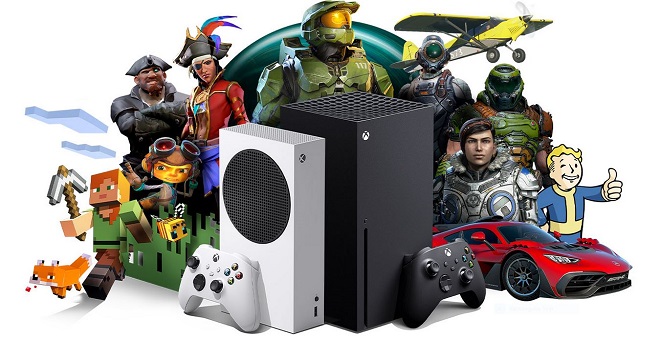Cognition Dissemination: It’s No Surprise That Game Pass Is Cannibalizing Sales

Microsoft’s Game Pass subscription service for Xbox platforms and PC was an immensely good deal for every party involved with few downsides, according to word spread around the internet in the last several years. The deal has indeed been very good for the gaming audience that’s brought into it, paying a base price for access to a large library of hundreds of games that could be downloaded and played locally as long as the subscription was maintained. It was, the logic similarly assumed, great for publishers too, through increasing exposure to their software, expanding the player bases for games among audiences that otherwise would have ignored them, and maintaining the health of online communities.
This logic was partly untrue, evidence now shows. Perhaps several people and communities should have realized sooner that this entire deal was too good to last in its current state.
The UK Competition and Markets Authority’s report regarding their conclusion on the still-impending merger of Activision and Blizzard (in which they largely recommended against it, with solutions Microsoft will undoubtedly find untenable) included an excerpt in which Microsoft admitted that putting games on Game Pass cannibalizes their sales. The data they submitted, according to the CMA and highlighted by GamesIndustry.biz, noted a “decline in base game sales twelve months following their addition on Game Pass.”
This, as the GI.biz article noted, contradicts the claim Head of Xbox Studios Phil Spencer made back in 2018, which kicked off the eventually-widespread claim that Game Pass had few downsides given its affordability. It’s not surprising that plenty of people won’t buy individual games being sold for $14.99 to, these days, $69.99 if they know it’s available on a service where they can get that figurative title alongside a gigantic library for between $9.99 and $14.99 a month. They also won’t buy certain titles if they think they’ll reach the service in a short time, considering the sheer number of Game Pass games that could occupy their free time until they arrive.

Before anyone doubts the veracity of the report, or thinks that Microsoft only said this to make the CMA look upon the company’s merger with Activision Blizzard more favorably, a follow-up report from Eurogamer provides further elaboration… through what it doesn’t say. Microsoft provided a canned PR response about the benefits of Game Pass upon being asked for comment, how they’re “focused on helping game creators of all sizes maximize the total financial value they receive through Game Pass,” and how “the number of developers interested in working with Game Pass continues to grow.” There is no denial of the report here at the opportune time for them to provide it.
Game Pass is a great deal, and it does work out for some video game developers and publishers on a case-by-case basis. But it’s so easy to see how it’s tanking sales of many other individual titles on the Xbox and Windows ecospheres that it was always clear this wouldn’t last. Arguments to the contrary for years were countered with Spencer’s mention from 2018 that Game Pass provided far more benefits than negatives. Don’t take this as me saying he was lying; what could have been true around half a decade ago may not be true now. But figurative cracks like the ones described in this post were inevitably going to surface, and should have been highlighted more frequently leading up to this moment.
In other words: Game Pass has run into a problem similar to what many streaming services are experiencing, where offering mountains of content at affordable prices isn’t sustainable in the long term.
There’s a good reason why Sony hasn’t entirely followed in Microsoft’s Game Pass footsteps with the PlayStation Plus Premium program, especially in terms of making new first-party games available on the service on day one. When asked, PlayStation CEO Jim Ryan told GamesIndustry.biz that Sony felt it would be more difficult for games to turn a profit if they followed through with such a plan. “The level of investment that we need to make in our studios would not be possible, and we think the knock-on effect on the quality of the games that we make would not be something that gamers want,” Ryan said. Microsoft is a considerably larger company than Sony and can afford to take on riskier experiments, but Sony has to feel justified in their actions following this report.
There’s been a lot of bad news surrounding Microsoft’s gaming initiatives lately. Between Xbox Series sales being down year-over-year as the system kicks off its third year (contrary to PlayStation 5, sales for which have been up considerably), the lack of console-exclusive software on those platforms, and this report, they’ve been in a bit of a rut. But it’s far too early to discount their potential for emerging from it. The company’s Xbox segment is too committed to Game Pass to phase out the program now, but don’t be surprised if they jack up the price or stop making as many first-party games available on the program on day one. Or both.





